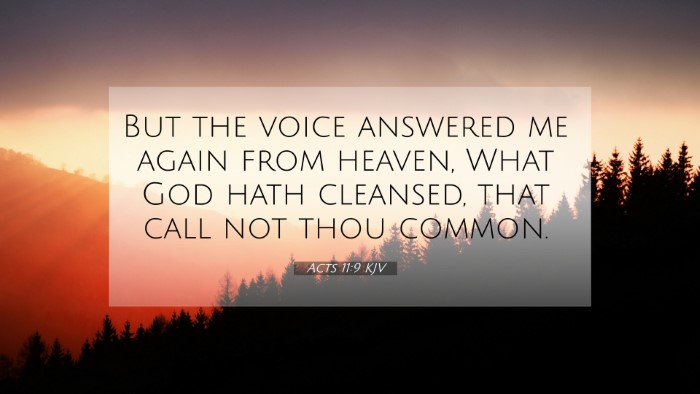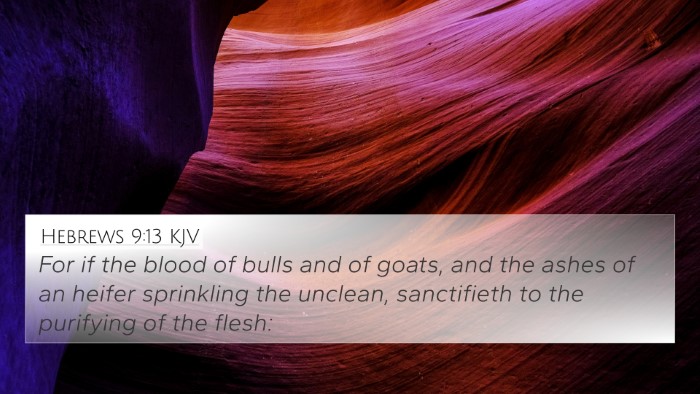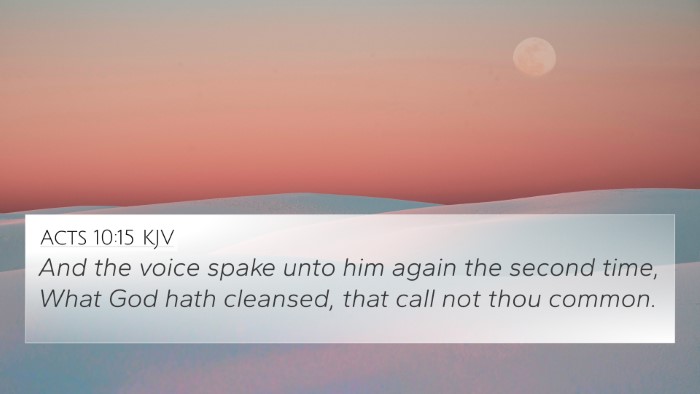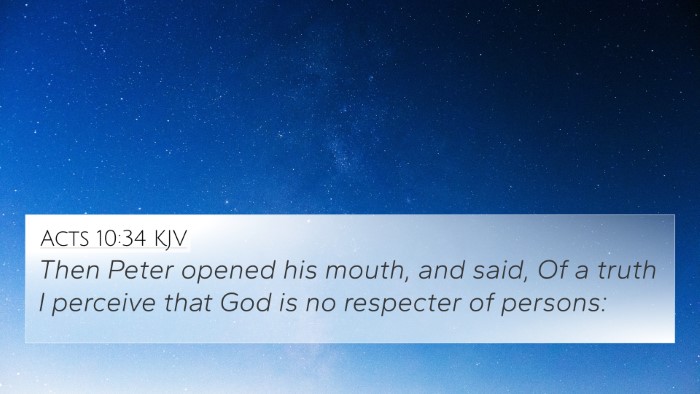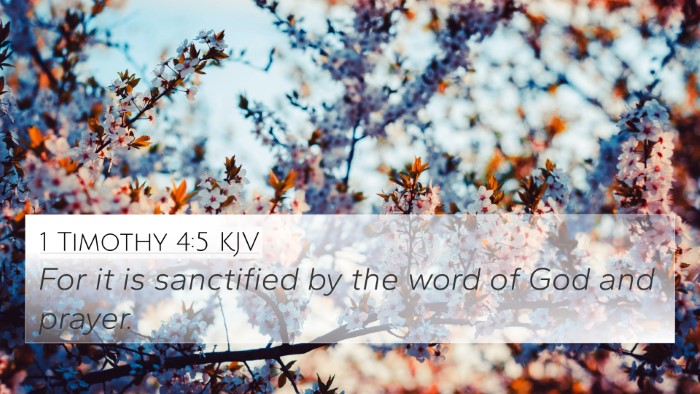Acts 11:9 - Verse Meaning and Interpretation
Acts 11:9 details a significant moment in Peter's vision, which serves as a pivotal turning point in the early church as it grapples with the inclusion of Gentiles. The verse states: "But the voice answered me again from heaven, What God hath cleansed, that call not thou common."
Summary of the Verse
This verse highlights God's message to Peter, indicating that what He has made clean should not be deemed unclean or common. This not only applies to dietary laws but also signifies the breaking down of barriers between Jews and Gentiles, emphasizing the universal nature of the Gospel.
Commentary Insights
Drawing from Matthew Henry, Albert Barnes, and Adam Clarke, we can interpret this verse in depth:
- Matthew Henry: Henry explains that this vision signifies God's approval of the Gentiles, stressing that no one should claim God’s creation as unclean. It portrays the idea that the Jewish dietary laws are fulfilled in Christ, and believers must not impose these restrictions on others.
- Albert Barnes: Barnes notes that the clarity of the vision was aimed at Peter's prejudices regarding the Gentile converts. He emphasizes that the voice represents God's will and signifies a divine instruction to embrace all people who are made clean through faith, thereby unifying believers from different backgrounds.
- Adam Clarke: Clarke provides insight into the broader implications this vision has for the early Church. He suggests that this encounter illustrates God’s intention for inclusivity in the faith, instructing believers not to judge others based on heritage or past practices.
Thematic Connections
Acts 11:9 aligns with several key Biblical themes:
- Inclusivity of the Gospel: The essence of this verse exemplifies the outreach of the Gospel to all nations, as highlighted in Matthew 28:19-20 (The Great Commission).
- Transformation and Cleansing: The concept of being cleansed appears in 1 John 1:9, which indicates God's ability to forgive and purify sins.
- Faith versus Traditions: Acts 15 discusses the Jerusalem Council, which deliberated over the necessity of Jewish laws for salvation, emphasizing that faith in Christ suffices.
Cross-References to Acts 11:9
Here are some relevant Bible verse cross-references:
- Matthew 28:19-20: The Great Commission, which instructs the apostles to make disciples of all nations.
- Romans 10:12: Emphasizes that there is no distinction between Jew and Gentile, for the same Lord is Lord of all.
- Galatians 3:28: Affirms that in Christ, there is neither Jew nor Gentile, indicating the equality of all believers.
- Ephesians 2:14: States that Christ is our peace, making both groups one and breaking down the dividing wall of hostility.
- John 3:16: For God so loved the world, indicating that salvation is available to all.
- Acts 10:15: Directly precedes this verse, where God tells Peter not to call anything impure that God has made clean.
- Colossians 3:11: Highlights the new creation in Christ, where there is no distinction among individuals.
Conclusion
Understanding Acts 11:9 and its implications leads to a deeper appreciation of the Gospel's transformational power, encouraging believers to embrace a spirit of love and acceptance. The connections between Bible verses enrich the study of scripture, revealing a cohesive narrative about God's universal call for inclusion.
Tools for Bible Cross-Referencing
Utilizing Bible reference resources and cross-reference Bible study methods can deepen one’s understanding:
- Bible Concordances: Great tools for finding cross-references throughout the textual landscape.
- Bible Cross-Reference Guides: Direct you to related passages that enhance understanding of specific themes.
- Software and Applications: Many Bible study tools now offer cross-referencing capabilities, making it easier to trace connections.


